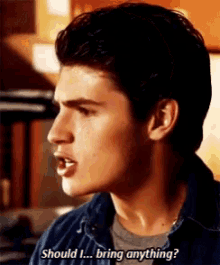Mastering the Art of Backhanded Compliments in Family Gatherings
Oh, joy! It’s that time of year again when we all gather ’round the dinner table with our beloved family members and engage in the time-honored tradition of passive-aggressive verbal sparring!
Listen up, folks, because I’m about to let you in on the secret sauce of family gatherings – the art of the backhanded compliment.
Now, before you roll your eyes and click away, hear me out.
This isn’t about being mean or hurtful.
No, no, no. This is about SURVIVAL, my friends.
It’s about navigating the treacherous waters of family dynamics with grace, wit, and just a touch of sass.
Trust me, I’ve been there. I’ve sat through countless family dinners where the tension was thicker than Aunt Mildred’s gravy.
I’ve fielded questions about my love life, my career choices, and my fashion sense (or apparent lack thereof).
And you know what? I’ve learned a thing or two along the way.
So buckle up, buttercup, because we’re about to dive into the wonderful world of backhanded compliments!
The Art of the Subtle Dig
Ah, the subtle dig. It’s like a ninja in the world of backhanded compliments – silent, deadly, and often undetected until it’s too late.
The key here is to keep it light and breezy, like you’re paying a genuine compliment.
For example: “Wow, Cousin Sarah, that dress is so brave! I could never pull off something like that.”
See what I did there? On the surface, it sounds like a compliment. But dig a little deeper, and…well, you get the picture.
The beauty of the subtle dig is that it leaves the recipient questioning whether they’ve just been insulted or not.
And by the time they figure it out, you’re already three bites into Grandma’s infamous fruitcake.
The “I’m Just Concerned” Approach
This technique is perfect for those of you who want to maintain your image as the caring, thoughtful family member.
You know, the one who’s “just looking out for everyone’s best interests.”
Here’s how it works:
“Oh, Uncle Bob, I’m so glad you’re enjoying that third helping of mashed potatoes. I was worried about your cholesterol, but clearly, you’re not concerned about that anymore!”
See how that works? You’re expressing concern (aww, how sweet), while simultaneously calling out Uncle Bob’s eating habits.
It’s like killing two birds with one stone, except the birds are your uncle’s feelings and your own need to assert dominance at the dinner table.
The Backhanded Compliment Sandwich
This one’s a personal favorite of mine. It’s like a regular compliment sandwich, but with an extra layer of…spice.
Here’s the recipe:
- Start with a genuine compliment
- Slip in your backhanded compliment
- Finish with another genuine compliment
Let’s put it into practice:
“Aunt Karen, your hair looks fantastic! It really distracts from those worry lines. And that color really brings out your eyes!”
Boom! By the time Aunt Karen processes the middle part, you’re already complimenting her eyes.
It’s like verbal whiplash, but with a smile!
The “Remember When” Technique
Ah, nostalgia. It’s a powerful tool in the hands of a backhanded compliment master.
This technique involves bringing up a past event or characteristic, but framing it in a way that highlights a current…shall we say, shortcoming?
For instance:
“Hey, little bro! Remember when you used to be the star quarterback? It’s so great that you’ve found contentment in your current… situation.”
Ouch, right? But it’s wrapped up in such a nice little package of reminiscence that your brother might not even realize he’s been insulted until he’s lying in bed that night.
The Comparative Compliment
This one’s tricky, but when executed properly, it’s a thing of beauty.
The idea is to compliment someone by comparing them favorably to something or someone else… but in a way that’s not actually all that favorable.
Here’s an example:
“Grandpa, your jokes are so much funnier than they were last year! You’re really improving!”
On the surface, it sounds like you’re praising Grandpa’s humor.
But the implication? His jokes were terrible before, and they’re only marginally better now.
It’s like telling someone they’re the smartest kid in remedial math. Sure, it’s a compliment, but…is it really?
The Overly Specific Praise
This technique involves praising something so specific that it implies everything else is subpar.
It’s like finding a needle in a haystack… and then complimenting the needle while ignoring the hay.
For example:
“Wow, Mom, this one pea in my casserole is cooked to perfection! What a achievement!”
See what I did there? I’ve praised Mom’s cooking… sort of. But I’ve also implied that the rest of the casserole isn’t up to snuff.
It’s a compliment wrapped in an insult, wrapped in a casserole. Delicious!
The Conditional Compliment
This one’s a real doozy. It involves giving a compliment, but then immediately attaching a condition to it.
It’s like giving someone a gift, but then telling them they can only use it on alternating Tuesdays when there’s a full moon.
Here’s how it works:
“Sis, you look amazing in that dress! If only you had the confidence to match.”
Ouch, right? But hey, you complimented the dress!
The conditional compliment is like a trojan horse of insults. It sneaks past their defenses with a nice comment, then unleashes its true purpose once it’s inside.
The Comparison to a Former Self
This technique involves comparing someone favorably to their past self… but in a way that highlights their current shortcomings.
It’s like telling someone they’ve really improved their free throws, when they used to play in the NBA.
For instance:
“Dad, your golf swing has really improved! You’re almost as good now as you were before the… incident.”
See what I did there? I’ve complimented Dad’s improvement, while simultaneously reminding him that he’s not as good as he used to be.
It’s like patting someone on the back while simultaneously kicking them in the shins. Masterful!
The Overenthusiastic Praise
This one’s all about laying it on thick. So thick, in fact, that it becomes clear you’re being sarcastic.
It’s like when your friend asks if their new haircut looks good, and you respond with, “Oh my god, it’s AMAZING! It’s the BEST HAIRCUT I’VE EVER SEEN IN MY LIFE!”
Here’s how it might play out at a family gathering:
“Cousin Mike, your karaoke performance was INCREDIBLE! I’ve never heard ‘Sweet Caroline’ sung with such… unique interpretation! You should DEFINITELY try out for American Idol!”
The key here is to go so over-the-top with your praise that it becomes obvious you don’t mean it.
It’s like sarcasm, but with jazz hands!
The Passive Voice Putdown
This technique involves using the passive voice to distance yourself from the insult, making it seem like you’re just the messenger.
It’s like throwing a verbal grenade and then pretending you just found it lying around.
For example:
“It’s been said that your Christmas sweater is… interesting, Aunt Jill.”
See what I did there? I didn’t say the sweater was interesting (or, let’s be real, hideous). I’m just reporting what’s “been said.”
It’s like gossiping, but with plausible deniability!
The Conclusion: Wield Your Power Wisely
And there you have it, folks! You’re now armed with an arsenal of backhanded compliments that would make even the most seasoned passive-aggressive relative proud.
But remember, with great power comes great responsibility.
Use these techniques wisely, and always with a dash of humor and a sprinkle of love.
After all, these are your family members we’re talking about. You’re stuck with them for life!
So go forth, my fellow family gathering survivors. May your compliments be backhanded, your digs subtle, and your gravy lump-free.
And if all else fails, there’s always the trusty “I need to use the bathroom” escape plan.
Happy gathering, and may the odds be ever in your favor!




